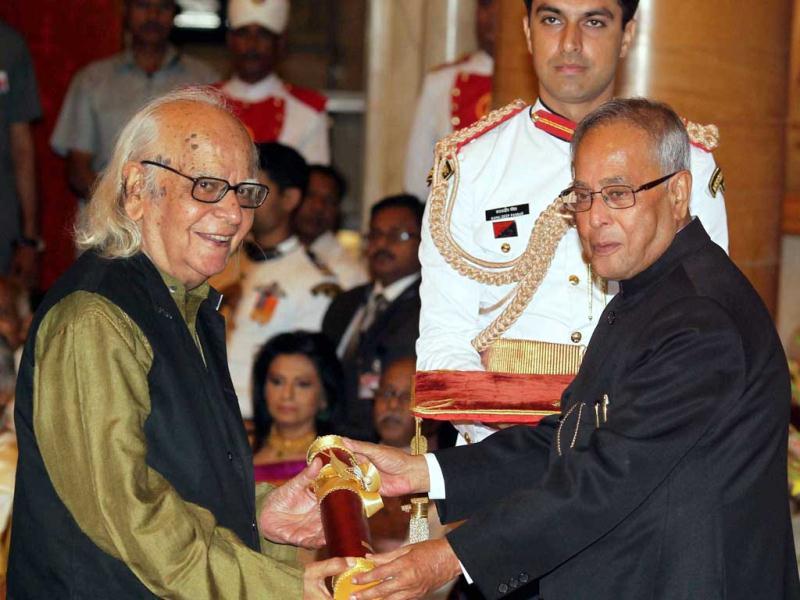Padma Bhushan scientist Yash Pal passed away on July 25, Tuesday in the city of Noida, Uttar Pradesh at the age of 90. The well-renowned scientist and educator made immense contribution in academics towards the study of cosmic rays, high-energy physics, and astrophysics, among others.
He rose to international fame for the role he played in the field of Science and Education and received the Padma Bhushan in 1976 and the Padma Vibhushan, India’s second highest civilian honour, in 2013. During the grand career of Yash Pal, he also served as the Chancellor of Jawaharlal Nehru University, New Delhi, from 2007 to 2012.
Professor Apoorvanand, Pal’s close acquaintance, said, “He was a poet of science. His sheer enthusiasm and joy of science, space and the ability of Indians to things on their own was something extraordinary that we don’t find today.”
The legend was born in 1926 in Jhang district of British India, now in Pakistan. His life as a professional began at the Tata Institute of Fundamental Research (TIFR), Mumbai, as a member of the Cosmic Rays group. To gain his PhD with specialisation in high-energy physics, astrophysics, communication, science policy and space technology, he went to Massachusetts Institute of Technology in the United States. Coming back to India after getting the degree, he got back with the TIFR, where he continued till 1983.
Back in 1972, when Government of India set up the Department of Space to have its own space programme, Pal was the first director of the then newly set up Space Applications Centre in Ahmedabad in 1973. But despite this, he represented the government and other agencies in scientific endeavors across the world in different capacities. Taking the office of the Second United Nations Conference on Peaceful Uses of Outer Space (1981–82) as Secretary General, Chief Consultant of the Planning Commission (1983–84), Secretary of Department of Science and Technology (1984–1986), and Chairman of University Grants Commission (1986–91) and has held many other positions.
Nevertheless, all his contributions fall short to make the impact that his for pioneering work in science communication in India makes and the same man has managed to bring popular science into the living room. He was a popular guest on the Doordarshan programme Turning Point during 1990s where he explained complex phenomena in everyday language, and his columns in several newspapers where he answered a wide variety of questions asked by readers, which made his name known to all households.
Several other television series like Bharat Ki Chaap, Tur-Rum-Tu and Race to Save the Planet also had him on the advisory board, where he sometimes hosted the programmes as well on special occasions like solar eclipses and passing of comets.
Being the man to never let go the hand of education, Pal kept it close to his heart and acknowledging this efforts in the sector, he was also made the chairman of an MHRD-appointed committee, which later came to be known as the Yash Pal committee, which primarily focused on reducing the burden on school children and also, improving the quality of education.
Pal was later requested to chair the Steering Committee of the National Council of Educational Research and Training which had the key focus set over exercise of drawing up the National Curriculum Framework
Reflecting that one of Pal’s report titled ‘Learning without burden’ was a seminal work, and how he always requested political leaders to make ways to reduce the burden on students, Apoorvanand said, “‘Bacchon ko samajh ka chaska lagne do,’ (Let the kids have the addictive taste of knowledge.) Pal used to say.”
The notable educationalist also headed a study that produced a report titled “Real Education for the Real India”, and also worked as the chairman of the committee to advise on “Renovation and Rejuvenation of Higher Education ” in the year 2008.
Of the many laurels his aura is dressed with, some are Firodia Award (2009), Yashwantrao Chavan National Award (2010), Asiatic Society Vidyasagar Gold Plaque (2010) and Vigyan Mani Award of the Punjab University.
To acknowledge his immense contribution and excellence in public administration, academics and management, fields that aptly sum up his contribution to public life, he was bestowed with the Lal Bahadur Shastri National Award in October 2011.
READ: President Kovind: A new hope to the swamped Indian Education
READ: Mukherjee retires, calls multiplicity in culture India’s speciality

